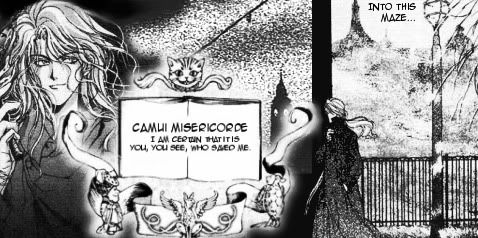Post by Mister Misericorde on Oct 2, 2009 23:00:01 GMT 9
NOTE! It's not mandatory for a teacher to actually role-play teaching a class and students do not have to role-play in threads that are offered only by teachers. If you would like to, just make your thread and anyone can join in, create NPC teachers, students and staff members if you like!
Student & Teacher Information[/b]
There are four levels of education:
• Elementary School: The students usually enter at age 6 and continue their education till they graduate from 6th grade around the age of 11. Public education is free but parents may have to pay for some things such as lunches, supplies, extra textbooks or private lessons. Usually, elementary students are taught Japanese language, social studies, math, science, music, arts and crafts, physical and moral education, etc.
• Middle School: The students in middle school are usually age 11, going into 7th grade and graduating in 9th grade usually at age 14 or 15. They have the choice of continuing their education or going directly into the world to find a job. Public education is free but parents may have to pay for some things such as lunches, supplies, extra textbooks or private lessons. Unlike Elementary, students have a homeroom teacher and then they must travel to other classrooms every fourty-five minutes, where they have a different teacher.
• High School: High school is not compulsory but many choose to continue on with their education, the students who attend high school are 15 to 17 years (in 10th grade to 12th grade). High school furthers their education into much more advanced studies and the way classes are held is similar to Middle School. High school has a complex procedure of admitting students in and it is similar to how young adults apply for university. Similar to Elementary and Middle School, public education is free but parents may have to pay for some things such as lunches, supplies, extra textbooks or private lessons.
• University: In order to get into university, students must take an entrance examination (nyûgaku shiken) and it is based mostly on the score they achieve. Like High school, it is not compulsory. Students who attend university have graduated and would like to further their education in an area of their choice in order to increase their chances of getting a certain job that meets their interests.
Yuugiri may be a large city but because it is situated on an island, it only really has four schools for students to attend:
- Toguki Elementary
- Jakunensha Middle School
- Nyuushin High School
- Hanazono University
NOTE! All schools listed except the university belong to the same school board but are located in different areas of the city.
Cram School
Cram school; it is a special program offered during after school hours and weekends. It provides subjects that students already have but it is to help them delve deeper into topics so that they can fully understand them. The school also offers remedial lessons for children who are behind, and lessons which help youths improve test scores. Students are also allowed to use their time there to study and get help. Cram school is often criticized as taking time from children, only to give them more stress; though, many who attend achieve higher grades than those who do not.
Student & Teacher Information[/b]
There are four levels of education:
• Elementary School: The students usually enter at age 6 and continue their education till they graduate from 6th grade around the age of 11. Public education is free but parents may have to pay for some things such as lunches, supplies, extra textbooks or private lessons. Usually, elementary students are taught Japanese language, social studies, math, science, music, arts and crafts, physical and moral education, etc.
• Middle School: The students in middle school are usually age 11, going into 7th grade and graduating in 9th grade usually at age 14 or 15. They have the choice of continuing their education or going directly into the world to find a job. Public education is free but parents may have to pay for some things such as lunches, supplies, extra textbooks or private lessons. Unlike Elementary, students have a homeroom teacher and then they must travel to other classrooms every fourty-five minutes, where they have a different teacher.
• High School: High school is not compulsory but many choose to continue on with their education, the students who attend high school are 15 to 17 years (in 10th grade to 12th grade). High school furthers their education into much more advanced studies and the way classes are held is similar to Middle School. High school has a complex procedure of admitting students in and it is similar to how young adults apply for university. Similar to Elementary and Middle School, public education is free but parents may have to pay for some things such as lunches, supplies, extra textbooks or private lessons.
• University: In order to get into university, students must take an entrance examination (nyûgaku shiken) and it is based mostly on the score they achieve. Like High school, it is not compulsory. Students who attend university have graduated and would like to further their education in an area of their choice in order to increase their chances of getting a certain job that meets their interests.
Yuugiri may be a large city but because it is situated on an island, it only really has four schools for students to attend:
- Toguki Elementary
- Jakunensha Middle School
- Nyuushin High School
- Hanazono University
NOTE! All schools listed except the university belong to the same school board but are located in different areas of the city.
Cram School
Cram school; it is a special program offered during after school hours and weekends. It provides subjects that students already have but it is to help them delve deeper into topics so that they can fully understand them. The school also offers remedial lessons for children who are behind, and lessons which help youths improve test scores. Students are also allowed to use their time there to study and get help. Cram school is often criticized as taking time from children, only to give them more stress; though, many who attend achieve higher grades than those who do not.


